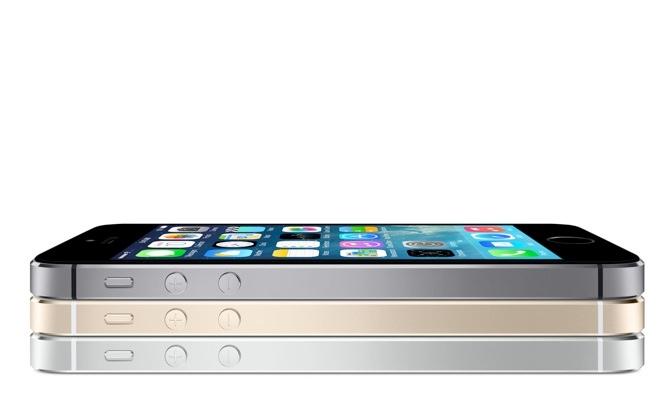Strong sales of the iPhone aren't just proving beneficial for Apple, they're also helping out formerly struggling carriers that have picked up Apple's bestselling device, according to new figures from Kantar Worldpanel.
Kantar Worldpanel released two new reports on Monday, one showing that the iPhone was responsible for a significant uptick in the smartphone sales share of carrier T-Mobile in the three months ending August 2013. T-Mobile launched the iPhone on its network in April of this year alongside a rebranding of its services as an "UNcarrier" offering "no-contract" services.
Those two factors combined, Kantar's figures show, led to T-Mobile's share of smartphone sales in the U.S. market growing to 13.2 percent, up 1.1 percentage points from the previous period.
"When iOS first debuted on T-Mobile in mid-April, the majority of sales came from consumers upgrading from a featurephone to their first smartphone," said Kantar director Dominic Sunnebo. "However, looking at those who purchased an iPhone in the August period, 56% of those consumers came from another smartphone, including 38.5% from an Android device."
Kantar's figures align with previous reports from T-Mobile, which hailed a "gangbusters" first day of iPhone sales after launch. In the three months ending August 2013, the iPhone 5 was the top-selling smartphone at T-Mobile, with 17.1 percent of sales. The launch of the iPhone 5s and iPhone 5c on that network may extend Apple's share even further.
iPhone at 40% of U.S. market, even with Android in Japan
Kantar's other report focused more generally on market share, finding that the iPhone held 39.3 percent of smartphone sales in the United States market for the three months ending August 2013. This figure, too, was even before the record breaking launch of the iPhone 5s and 5c in September. Kantar believes Apple's share will almost certainly spike in its next examination of the market.
In Japan, Apple is just ahead of the Android platform, with Apple holding a 48.6 percent share to Android's 47.4. Apple could open up a wide lead, though, thanks to the iPhone's arrival on NTT DoCoMo, the country's largest carrier.
Kantar's report also looked at the fortunes of other smartphone platforms, finding that Microsoft's Windows Phone platform is approaching a double-digit market share across the five major European markets. In Germany, Windows Phone is within one percentage point of iOS. Microsoft's growth in this arena is fueled in large part by Nokia's low-end Lumia handsets, which are popular among 16 to 24 year-olds and 35 to 49 year-olds.
Troubled Canadian manufacturer BlackBerry remains in a tailspin, according to Kantar's figures. The erstwhile leader in mobile productivity now stands at a 1.8 percent share in the United States and a 2.4 percent share across the major European markets.
 Kevin Bostic
Kevin Bostic




-xl-m.jpg)


-m.jpg)






 Thomas Sibilly
Thomas Sibilly
 Wesley Hilliard
Wesley Hilliard
 Christine McKee
Christine McKee
 Amber Neely
Amber Neely
 William Gallagher
William Gallagher
 Malcolm Owen
Malcolm Owen

 Mike Wuerthele
Mike Wuerthele







16 Comments
Quite staggering, all from one company. Japan and China are the two I think we should see flourish this year (iPhone year, not calendar).
EDITED: DELETED POST. Never mind. I was complaining about how incredibly successful Apple is, and yet how every bit of astoundingly good news sends APPL lower. But why comment? It's like trying to stop the wind.
So what we have ...
iOS = Apple
Windows Phone = Nokia
Android = Everybody else
BBOS = Death throws
But but but there is no growth. Just goes to show you analysts are drunk guessers.
I wonder how many of Nokia's Lumina phone sales are from people who mainly want a Nokia product? We know that no other Win Phone manufacturer has anything other than a pittance of sales, including Samsung. If true, we could see sales reverses in the Lumina line as more people decide to not buy a Microsoft phone as opposed to buying a Nokia phone. This could take a couple of quarters to see.